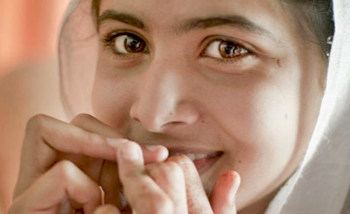May 15: Global tensions simmered over the race for a coronavirus vaccine Thursday, as the United States and China traded jabs, and France slammed pharmaceuticals giant Sanofi for suggesting the US would get any eventual vaccine first.
Scientists are working at breakneck speed to develop a vaccine for COVID-19, the disease caused by the virus, which has killed more than 300,000 people worldwide and pummelled economies.
From the US to Europe to Asia, national and local governments are easing lockdown orders to get people back to work -- while fretting over a possible second wave of infections.
Increased freedom of movement means an increased risk of contracting the virus, and so national labs and private firms are labouring to find the right formula for a vaccine.
The European Union's medicines agency offered some hope when it said one could be ready in a year, based on data from clinical trials already underway.
But Marco Cavaleri, the EMA's head of vaccines strategy, acknowledged that timeline was a "best-case scenario," and cautioned that "there may be delays."
The race for a vaccine has exposed a raw nerve in relations between the United States and China, where the virus was first detected late last year in the central city of Wuhan.
Two US agencies warned Wednesday that Chinese hackers were trying to steal COVID-19 vaccine research -- a claim Beijing rejected as "smearing" its reputation.
US President Donald Trump, who has ratcheted up the rhetoric against China, said he doesn't even want to engage with Chinese leader Xi Jinping -- potentially imperilling a trade deal between the world's top two economies.
"I'm very disappointed in China. I will tell you that right now," he said in an interview with Fox Business.
"There are many things we could do. We could do things. We could cut off the whole relationship."
On Capitol Hill, an ousted US health official told Congress that the Trump government had no strategy in place to find and distribute a vaccine to millions of Americans, warning of the "darkest winter" ahead.
"We don't have a single point of leadership right now for this response, and we don't have a master plan," said Rick Bright, who was removed last month as head of the US agency charged with developing a coronavirus vaccine.
The United States has registered nearly 86,000 deaths linked to COVID-19 -- the highest toll of any nation.
World leaders were among 140 signatories to a letter published Thursday saying any vaccine should not be patented and that the science should be shared among nations.
"Governments and international partners must unite around a global guarantee which ensures that, when a safe and effective vaccine is developed, it is produced rapidly at scale and made available for all people, in all countries, free of charge," it said.
But a row erupted in France after drugmaker Sanofi said it would reserve first shipments of any vaccine it discovered to the United States.
The comments prompted a swift rebuke from the French government -- President Emmanuel Macron's office said any vaccine should be treated as "a global public good, which is not submitted to market forces."
Sanofi chief executive Paul Hudson said the US had a risk-sharing model that allowed for manufacturing to start before a vaccine had been finally approved -- while Europe did not.
"The US government has the right to the largest pre-order because it's invested in taking the risk," Hudson told Bloomberg News.
Macron's top officials are scheduled to meet with Sanofi executives about the issue next week.
The search for a vaccine became even more urgent after the World Health Organization said the disease may never go away and the world would have to learn to live with it for good.
"This virus may become just another endemic virus in our communities and this virus may never go away," said Michael Ryan, the UN body's emergencies director.
The prospect of the disease lingering leaves governments facing a delicate balancing act between suppressing the pathogen and getting their economies up and running.
In the US, more grim economic data emerged Thursday, with nearly three million more Americans applying for unemployment benefits.
That takes the overall total to 36.5 million -- more than 10 percent of the US population.
Further signs of the damage to businesses emerged when Lloyd's of London forecast the pandemic will cost the global insurance industry about $203 billion.
European markets closed down, but Wall Street rallied despite the new jobless claims. In a sign of progress, the New York Stock Exchange trading floor was due to reopen on May 26.
The reopening of economies continued in earnest across Europe, where the EU has set out proposals for a phased restart of travel and the eventual lifting of border controls.
"Maybe it's a mistake, but we have no choice. Without tourists, we won't get by!" Enrico Facchetti, a 61-year-old former goldsmith, said of Venice's reopening.
Japan -- the world's third largest economy -- lifted a state of emergency across most of the country except for Tokyo and Osaka.
And Canadian Prime Minister Justin Trudeau said national parks would partially reopen on June 1.
But in Latin America, the virus continued to surge, with a 60 percent leap in cases in the Chilean capital of Santiago.
Authorities said 2,000 new graves were being dug at the main cemetery.
South Sudan reported its first COVID-19 death on Thursday.
And in Bangladesh, the first case was confirmed in the teeming Rohingya refugee camps in Bangladesh, which are home to nearly one million people.
 Malala has pledged to donate the $100,000 award money towards education in Pakistan.
Malala has pledged to donate the $100,000 award money towards education in Pakistan.




Comments
Add new comment